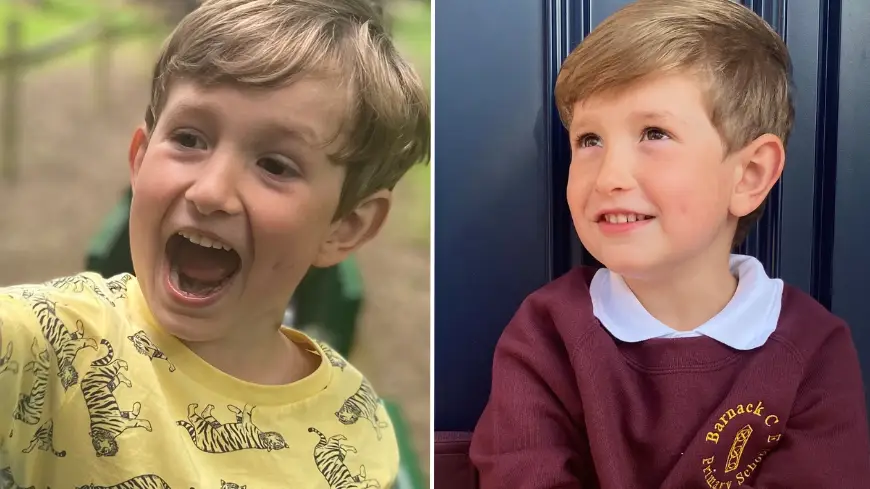
A heartbroken mum has demanded a change in schools after her five-year-old son tragically died from a food allergy.
Helen Blythe, whose child Benedict collapsed at school and died just hours later, has come forward to declare that children should feel 'safe and protected' at schools.
The grieving mother has since called for a new code of practice to be launched to curb the number of life-threatening allergic reactions in schools.
Benedict, who was allergic to dairy, eggs, peanuts, sesame and chickpeas, died on December 1 2021.
Advert

Following his devastating death, The Benedict Blythe Foundation – set up in memory of Benedict – along with The Allergy Team and the Independent Schools’ Bursars Association (ISBA) launched the Schools Allergy Code to help protect children with allergies at school.
It sets out a number of steps schools can take to keep pupils safe, including: annual teacher training on allergies; awareness raising activities throughout the school including dedicated assemblies and lessons; a comprehensive allergy and anaphylaxis policy in place and individual healthcare plans for all children with allergies.
It comes after Helen said that 'countless' parents had reached out to her to describe how their child with allergies had suffered an allergic reaction or a 'near miss' at school.
She explained: "Too many children with allergies face unacceptable levels of risk at school, somewhere they should feel safe and protected.

"Since Benedict died, I have spoken to countless parents and carers whose children have suffered allergic reactions or near-misses at school.
"I hope this new Code will ensure schools interrogate their own processes, improve their understanding of allergies and know how to respond in an emergency."
Schools can apply to join a register held by The Allergy Team.
These schools will then be assessed and awarded a trust mark if they meet the criteria set out in the Code meaning that families will be able to search for schools on the register.
Sarah Knight, founder of The Allergy Team, said: "Knowing that a school meets the criteria set out in the Schools Allergy Code will give parents huge confidence when choosing a school for a child with allergies.
"To join the register and display the trust mark, schools will be assessed; this ensures they don’t just pay lip service to the Code but put it into practice, with buy-in from the whole school community."

John Murphie, chief operating officer of the Independent Schools’ Bursars Association, added: "The Schools Allergy Code is a game-changer for safety in schools.
"Allergy is an often overlooked area of safeguarding, and we need to give parents, pupils and staff greater confidence that schools really understand allergy and know how to reduce risk."
A Department for Education spokesperson said: "We understand the seriousness of severe allergies and we are clear that children with medical conditions should be properly supported to enjoy a full education and be safe at school.
"All schools are required to make arrangements that ensure this is the case."
If you have experienced a bereavement and would like to speak with someone in confidence, contact Cruse Bereavement Care via their national helpline on 0808 808 1677.